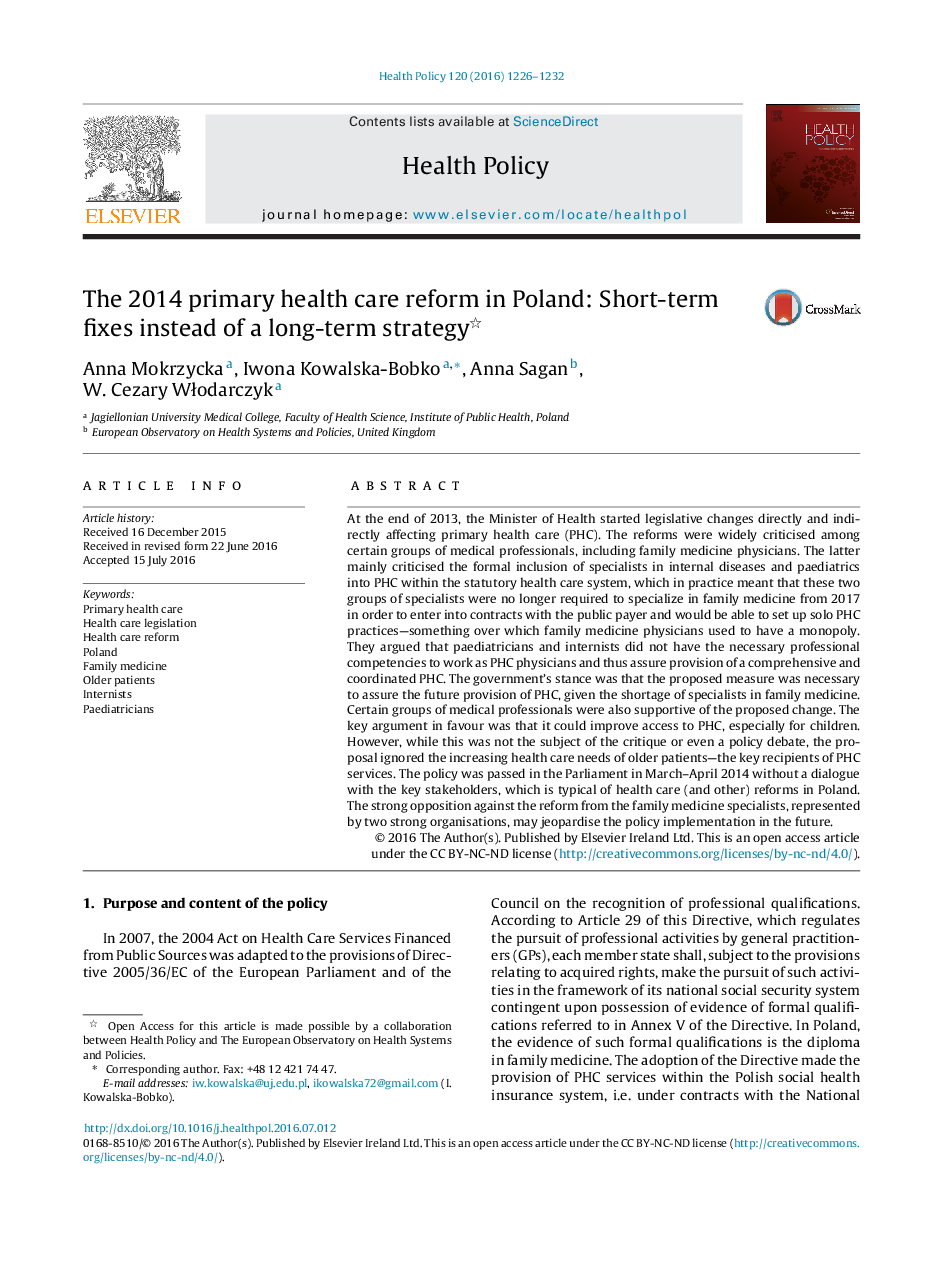| کد مقاله | کد نشریه | سال انتشار | مقاله انگلیسی | نسخه تمام متن |
|---|---|---|---|---|
| 5723425 | 1411449 | 2016 | 7 صفحه PDF | دانلود رایگان |

- The reform allowed pediatricians and internal medicine specialists to provide primary health care (PHC) services that would be reimbursed by the National Health Fund.
- The reform provides a short-term fix to the low number of physicians with a specialization in family medicine.
- A long-term strategy is missing to assure the provision of high quality PHC for the ageing population.
At the end of 2013, the Minister of Health started legislative changes directly and indirectly affecting primary health care (PHC). The reforms were widely criticised among certain groups of medical professionals, including family medicine physicians. The latter mainly criticised the formal inclusion of specialists in internal diseases and paediatrics into PHC within the statutory health care system, which in practice meant that these two groups of specialists were no longer required to specialize in family medicine from 2017 in order to enter into contracts with the public payer and would be able to set up solo PHC practices-something over which family medicine physicians used to have a monopoly. They argued that paediatricians and internists did not have the necessary professional competencies to work as PHC physicians and thus assure provision of a comprehensive and coordinated PHC. The government's stance was that the proposed measure was necessary to assure the future provision of PHC, given the shortage of specialists in family medicine. Certain groups of medical professionals were also supportive of the proposed change. The key argument in favour was that it could improve access to PHC, especially for children. However, while this was not the subject of the critique or even a policy debate, the proposal ignored the increasing health care needs of older patients-the key recipients of PHC services. The policy was passed in the Parliament in March-April 2014 without a dialogue with the key stakeholders, which is typical of health care (and other) reforms in Poland. The strong opposition against the reform from the family medicine specialists, represented by two strong organisations, may jeopardise the policy implementation in the future.
Journal: Health Policy - Volume 120, Issue 11, November 2016, Pages 1226-1232